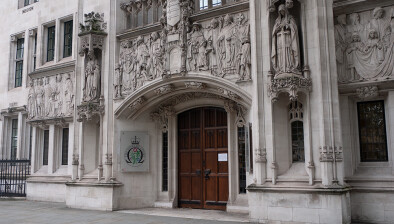ECtHR: British man who challenged dismissal that relied on phone data has appeal rejected

A man who challenged his dismissal by an NHS trust for stalking and harassment, on the basis it had availed itself of private material including WhatsApp data, has had his application unanimously declared inadmissible by the European Court of Human Rights.
The case concerned George Garamukanwa’s dismissal by a state-run health service after an investigation for harassment based on photographs stored on his iPhone, and on emails and WhatsApp correspondence.
The court found that the applicant could not reasonably have expected that the photographs and communications relied on by the disciplinary panel to dismiss him would remain private. He had already been told by his employer that his behaviour was inappropriate almost a year before the police had started investigating the harassment claims and his suspension from his post.
It pointed out that the case could be distinguished from a recent one concerning privacy of communications in the workplace, Bărbulescu v Romania, where it had found that an employee had not been given notice as to the extent and nature of his employer’s monitoring of his communications.
Mr Garamukanwa was employed by a National Health Service Trust from October 2007 as a clinical manager. In June 2012, L.M., a colleague with whom he had had a relationship, raised concerns with her manager about emails he had sent her and other employees about her alleged relationship with a junior member of staff. The manager warned the applicant that his behaviour was inappropriate.
He was suspended in April 2013 when the police informed the Trust that they were investigating claims by L.M. that he had been stalking and harassing her and sending anonymous malicious emails to employees of the Trust.
After an internal investigation and disciplinary proceedings, the Trust dismissed the applicant in December 2013 for gross misconduct. It relied in particular on photographs stored on his iPhone, passed to it by the police, linking him to certain anonymous emails, as well as personal emails and WhatsApp messages exchanged by the applicant and other employees, including L.M. The applicant had voluntarily provided some of the communications at one of the disciplinary hearings.
He challenged his dismissal in court, notably arguing that the Trust had relied on private material. His claim was ultimately dismissed in 2016 on appeal. The courts found that he could have had no reasonable expectation that the evidence relied on by the Trust would remain private.
The court had reiterated in previous cases that communications from business premises could be covered by the notions of “private life” and “correspondence” under Article 8. In determining whether Article 8 was applicable, it had stated that an individual’s reasonable expectation of privacy was a significant though not necessarily conclusive factor.
It was therefore clear from the court’s recent case-law that Article 8 of the Convention could be applicable in a case where an employer relied on material or communications of a private nature to justify a dismissal.
However, in the applicant’s case, the court considered that the applicant could not reasonably have expected that any of the material or communications before the disciplinary panel would remain private.
In particular, by the time the police had arrested and interviewed him in April 2013 concerning the harassment allegations, the applicant had been aware for almost a year that the Trust considered his behaviour inappropriate. He could not therefore have reasonably expected that any material or communications after June 2012 linked to the harassment allegations would remain private.
Nor had the applicant sought to challenge the use of the iPhone material or any private communications during the disciplinary hearing. On the contrary, he had voluntarily provided the panel with further private communications.
The domestic courts had considered the applicant’s Article 8 arguments and come to the same conclusion. The court could not see that the applicant had submitted any strong reasons for it to find otherwise and therefore rejected his complaint as inadmissible.







